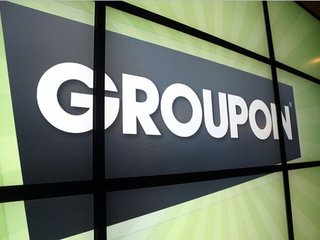
Groupon stock poised for a disappointing drop
Groupon shares popped at $28-$30, but did Groupon just set itself up for a big letdown?
 Groupon shot out of the gate this morning at $27 a share and jumped 55% to $30 a share within the first hour of trading, for a market cap of $18-$20 billion. The valuation blows all other Web IPO predecessors out of the water, making Groupon the largest Internet IPO since Google in 2004. But is it all a bunch of hot air?
Groupon shot out of the gate this morning at $27 a share and jumped 55% to $30 a share within the first hour of trading, for a market cap of $18-$20 billion. The valuation blows all other Web IPO predecessors out of the water, making Groupon the largest Internet IPO since Google in 2004. But is it all a bunch of hot air?
The scramble for Groupon shares seems extraordinary at first glance, but a closer look shows that much of the pop may just be coming from Groupon’s low float. The company is only offering some 5% of its total stock—a record low among U.S. Web companies. LinkedIn offered a little more than 8%, Zillow offered 13%, and Pandora offered 9%.
“A low float engineers a large market capitalization,” said Josef Schuster, founder of IPO research firm IPOX Schuster, in an interview with VatorNews. “It was used in the late 90s and to some degree with LinkedIn and other IPOs, but it’s not really a strategy which favors long-term IPO investing. It’s better for maximizing market cap in the short term.”
So what can we expect to see over the next few months? Groupon will likely continue to trade high, but at some point, it will drop.
And what will send Groupon’s value crashing down?
“When more negative news comes out about revenue or its business model,” said Schuster, who believes we can expect to see a dip three months from now, at the earliest.
Sam Hamadeh, CEO of private company financial data company PrivCo, agrees.
“We think the $28 to $30 share price (a pop PrivCo expected given the very small float being offered—just about 5.3%) will prove temporary as the company begins to report numbers each quarter showing continued weakness in the underlying business metrics, and as insiders eagerly sell when the lockup period expires in May,” he told me.
So, while Groupon experienced an impressive pop this morning, it may have just set itself up for a disappointing drop some time down the line.
"Most institutional investors seemed to be looking to hold Groupon stock for days not months, as small retail investors are expected to buy the familiar brand name on the open regardless of the company's financial condition,” Hamadeh said in a PrivCo report.
You’d think Groupon would have learned its lesson about fudging the numbers by now, considering the hoopla surrounding its questionable accounting methods, which more than doubled Groupon’s real revenue back when it filed in June. It was a bit of a sneaky maneuver: Groupon was including merchant cut as part of its own revenue. Additionally, its CSOI metric calculated income without accounting for marketing spend.
The result: Groupon had to scrap the CSOI metric and only include its own cut in calculating revenue, which had the effect of creating a disappointing but inevitable drop in Groupon’s total revenue.
Is Groupon just priming itself for another letdown?
Image source: blogspot.com
Related News


Groupon prices shares at $16-$18, valued at $11.4B

